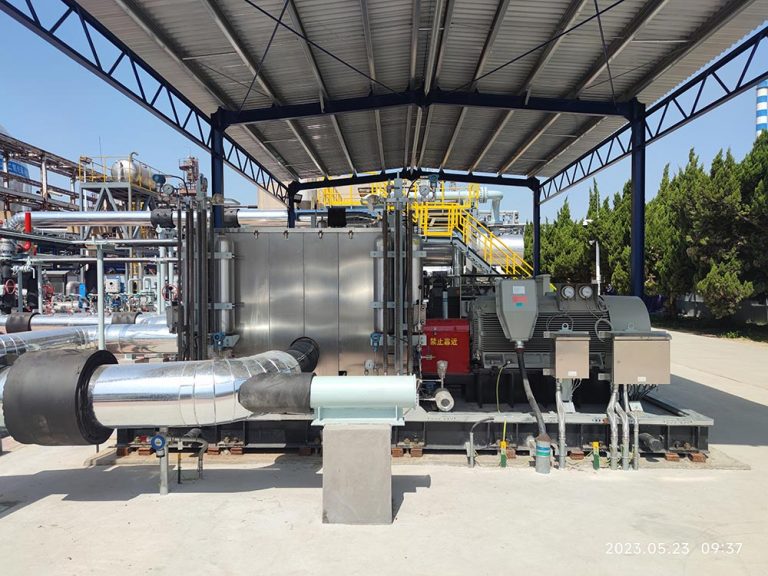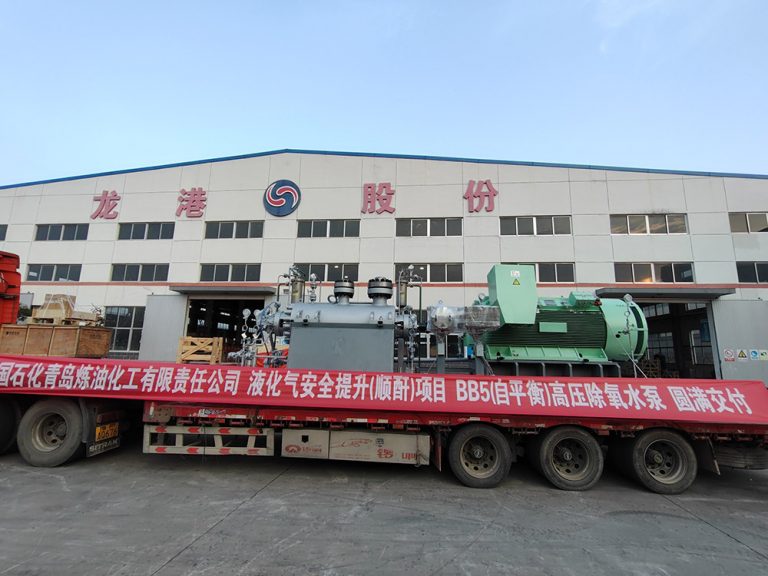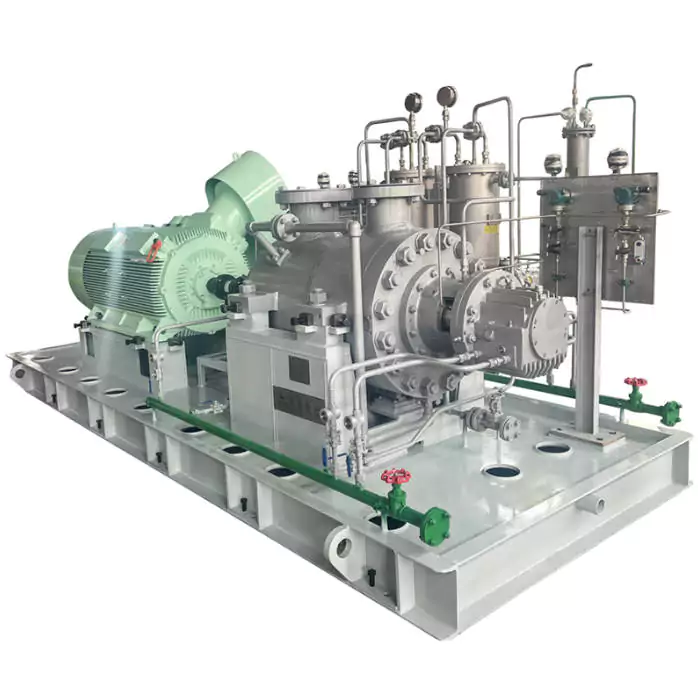Standards established by the American Petroleum Institute (API) play a role, in the pump sector guaranteeing that pumps adhere to quality, safety and dependability standards. These guidelines assist manufacturers in creating equipment to endure the challenging environments in sectors like oil and gas. It is crucial to grasp the distinctions, between API and non API pumps to make informed buying choices and maintain peak operational effectiveness.
What Are API Standards and Why Do They Matter?
API Standards
API guidelines cover a range of rules and specifications, for creating, producing, and testing pumps utilized in situations. These guidelines establish the performance criteria, material details and testing procedures to guarantee that machinery can function reliably in demanding conditions. Additionally, API standards address factors like precision and sealing, which are crucial, for upholding integrity when facing pressure.
API Standarads’ Role in the Pump Industry
Following API standards allows manufacturers to create secure equipment that reduces the chances of malfunctions and leaks. Adhering to API standards is typically a requirement for equipment used in high pressure settings like those in the petrochemical sector. Consequently pumps that adhere to these standards are generally perceived as reliable and suitable, for tasks.
How Do Material Selections Differ Between Non-API and API Pumps?
Materials Used in API Pumps
API pumps commonly use materials that are specifically chosen to endure operating conditions, like pressures and corrosive fluids. These materials often consist of types of steel, carbon steel and special alloys. The choice of these materials is based on API standards that guarantee the pumps can manage the strains and chemical interactions, in their working surroundings.
Materials Used in Non-API Pumps
Non API pumps on the hand may utilize materials such, as plastics, lighter metals and composite materials based on their specific purposes. Although these materials could offer cost flexible options they might lack the durability and protection against elements that API pumps provide. As a result non API pumps are typically more suitable for tasks that do not require adherence, to API standards.
FactorsDriving Material Choices
The selection of materials, for both API and non API pumps is influenced by various factors such as cost, specific application needs and environmental concerns. API pumps prioritize safety and reliability while non API pumps may need to strike a balance between these aspects and budget limitations as application specific requirements. It’s crucial to take these factors into account when determining the type of pump, for particular operational requirements.
Differences between Non-API and API Pumps Related to Pressure and Temperature Capabilities?
Pressure Handling Capabilities of API Pumps
API pumps are created to work efficiently in situations of pressure with designated pressure ratings specified in API guidelines. These pumps usually include building characteristics like strengthened casings and durable parts to guarantee their ability to manage pressure circumstances. This capacity is especially crucial, in scenarios involving high pressure liquids or gases.
Temperature Ranges of API-compliant Pumps
API pumps also have defined temperature operating ranges, often extending to high extremes to accommodate the needs of various industrial applications. The materials and design features help maintain performance integrity within these temperature limits, which is essential for preventing failures in critical applications.
Comparison with Non-API Pump Capabilities
Non-API pumps generally exhibit lower pressure and temperature ratings than their API counterparts. These pumps may be designed for standard industrial processes rather than the demanding environments encountered in sectors like oil and gas. Understanding these differences is crucial for selecting the right pump based on the specific operational parameters that need to be met.
How Does Maintenance and Reliability Differ?
Maintenance Requirements for API Pumps
API pumps typically require more rigorous maintenance practices due to their operational demands and the critical nature of their applications. The maintenance schedules often involve regular inspections, servicing of components, and replacement of wear parts. Compliance with API standards sometimes necessitates thorough documentation of maintenance activities to ensure ongoing reliability and performance.
Reliability Factors in Non-API Pumps
Non-API pumps may have varied reliability depending on their construction and material choices. Although they may not require as stringent maintenance schedules as API pumps, they might be less durable in challenging conditions. This makes it essential to evaluate the expected operational environment when considering non-API pumps, as this will impact their long-term reliability and maintenance needs.
Costs Associated with Maintenance
Cost considerations play a significant role when comparing the maintenance of non-API and API pumps. While API pumps may incur higher maintenance costs due to their complex engineering and performance expectations, non-API pumps may offer lower initial and ongoing maintenance costs. However, it is essential to weigh these cost factors against the potential risks associated with lower reliability in critical applications.
Where Are These Pumps Typically Applied?
Applications for API Pumps
API pumps are predominantly utilized in applications that require stringent reliability and performance under demanding conditions, such as the oil and gas industry. Here, they serve critical functions, handling not only crude oil but also refined products and other petrochemicals. Chemical processing plants also rely heavily on API-compliant designs due to the need for materials and systems capable of withstanding corrosive substances. Their ability to meet high pressures and temperature ratings makes them indispensable in these industries.
Oil & Gas Industry
In the oil and gas sector, API pumps play a pivotal role in extraction, transportation, and refining processes. These pumps are integral to the safe operation of drilling rigs and offshore platforms, where they manage the movement of high-pressure materials. Additionally, API pumps are used extensively in pipelines, where they ensure fluid delivery under rigorous conditions by providing the necessary pressure to overcome frictional losses. The reliability offered by these pumps significantly contributes to the operational efficiency and safety of oil and gas projects.
Chemical Processing Plants
API pumps are also essential in chemical processing environments where they transport a variety of aggressive chemicals safely and efficiently. The specifications outlined by API standards ensure that these pumps can handle the corrosive properties of certain chemicals, reducing the risk of leaks or failures. Furthermore, the durability required for high-performance chemical activities aids in minimizing operational downtime, enhancing overall productivity in these facilities. Consequently, API pumps have become a staple in the chemical processing industry.
Typical Uses for Non-API Pumps
Non-API pumps find applications in a wide array of general industrial sectors where the demands are less rigorous compared to API standards. These pumps are particularly advantageous in scenarios where cost constraints are a primary consideration. Common applications include water transfer in various industrial processes and light-duty fluid handling in manufacturing settings. Their versatility allows them to cater to segments that do not require the specific capabilities delivered by API-recognized designs.
General Industrial Applications
In settings pumps that are not classified as API pumps are frequently used for handling different fluids that are not dangerous or exposed to harsh conditions. These pumps are commonly employed in tasks such, as moving water, diluting oils and handling corrosive liquids. While they may not be subject to the testing and regulations required for API pumps their effectiveness is often sufficient, for demanding purposes. Assessing the requirements of the task can guide the selection of a pump design.
HVAC Systems
Non API pumps are well suited for use, in HVAC systems helping to circulate fluids for heating and cooling purposes. These pumps are crucial in ensuring the flow of water or refrigerants through system parts ultimately improving energy efficiency. Their uncomplicated mechanical structure often leads to more maintenance making them a popular option, for various HVAC setups. The ability of these pumps to function effectively within temperature and pressure ranges closely matches the needs of HVAC operations.
When Considering Your Budget, Which Type of Pump Should You Select?
Initial Cost Considerations
When comparing API and non-API pumps, initial cost is a significant factor influencing the decision-making process. API pumps require a more considerable upfront investment due to their high-quality materials, advanced engineering, and the stringent testing and compliance required. These pumps, although more expensive, often justify their costs through enhanced safety and reliability. Conversely, non-API pumps usually come with a lower initial price tag, making them appealing for budget-conscious projects, particularly where high performance is not a critical requirement.

Long-term Financial Implications
Non API pumps may seem cheaper at first. Its important to think about the long term costs too. Over time these pumps might end up costing more due, to maintenance requirements. The need for more frequent replacements compared to API pumps. Even though API pumps have an price tag they are known for their reliability, which can result in less downtime and lower maintenance expenses. Therefore when looking at the cost of ownership opting for API pumps could be more beneficial, for applications that require performance and lower risk levels.
Which Pump Should You Choose for Your Needs?
Assessing Your Specific Requirements
Selecting the pump type depends on evaluating your unique needs. Recognizing the characteristics of the liquids used, operational pressures and temperature ranges is vital, to deciding if an API or non API pump is appropriate for your requirements. Additionally being aware of the safety, regulatory and environmental factors relevant to your industry can help steer your decision making process. It’s crucial to align the capabilities of the pump, with the requirements of the application to enhance system efficiency and durability.
Application Type
When deciding between API and API pumps it’s important to consider the type of application you’re dealing with. For high pressure processes API pumps are often the option, due to their safety features and durability. However in environments, like water transfer or HVAC systems non API pumps could be a cost effective choice. Assessing these factors thoughtfully will help you make a informed buying decision.
Budget Constraints
When selecting pumps budget constraints can play a role. API pumps might come with an price tag especially for businesses working with limited budgets. However it’s important to consider factors, like maintenance and efficiency in the run. By weighing the costs against the savings from reliability and decreased maintenance requirements, over time you can paint a more comprehensive financial picture that matches your operational objectives and resource management plans effectively.
Yantai Longgang Pump Industry Co., Ltd. offers a range of high-quality pumps that meet API standards and are designed to deliver efficient and reliable performance in demanding environments.









